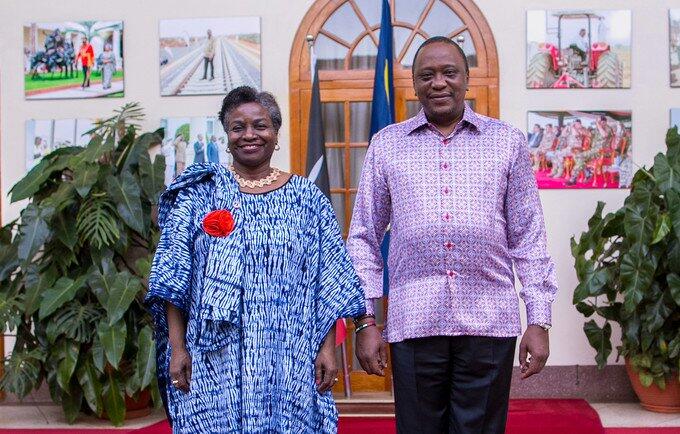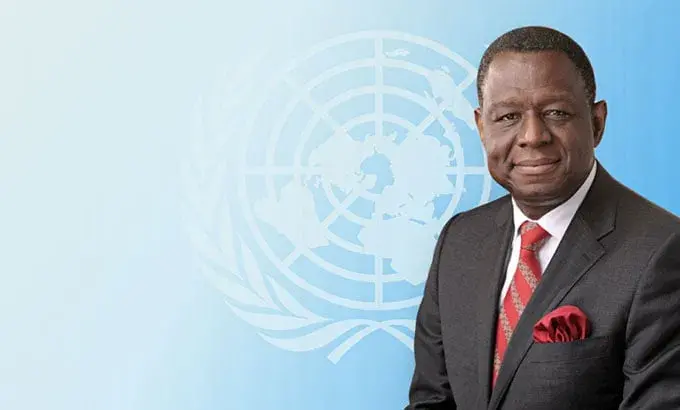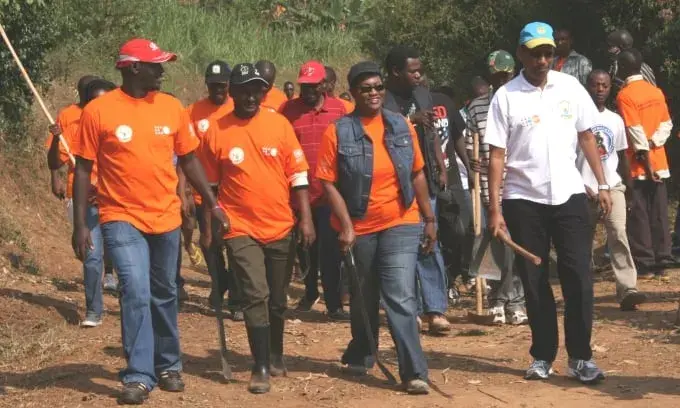NAIROBI, Kenya – Kenyan President Uhuru Kenyatta hailed the strong partnership between his government and UNFPA during a meeting with UNFPA’s Executive Director, Dr. Natalia Kanem, at State House in Nairobi yesterday.
President Kenyatta re-affirmed his country’s commitment to the agenda of the International Conference on Population and Development, which highlights that sexual and reproductive rights are central to sustainable development.
A global summit, to be held 25 years after the original 1994 International Conference on Population and Development (ICPD), will be convened in Kenya this November.
The issues at the heart of the upcoming Nairobi Summit, said President Kenyatta, are in line his country's development priorities, including the goal of inclusive growth, with universal health coverage being a key pillar of the Big Four Agenda, Kenya’s national development blueprint. The Nairobi Summit on ICPD25: Accelerating the promise will take place from 12 to 15 November.
Citing primary health care, the president said UNFPA’s work in this area offers great potential for new engagement.
“We can see this partnership working more solidly in this area because it is at that level where we need to focus more attention,” he said, stressing that the cornerstone of government policy is to improve health outcomes and prosperity for all.
“Kenya cannot do this alone, and that is why we want to work with other partners to ensure universal health coverage, which we have started implementing on a pilot basis, succeeds,” he said.
Dr. Kanem lauded the Government of Kenya for its commitment and investment in sexual, reproductive and maternal health.
“Kenya is attracting very favourable attention and for a good reason,” she said.
In her remarks, Cicily Kariuki, the Cabinet Secretary for Health, emphasized that resource gaps have created challenges in meeting sexual and reproductive health needs. She also noted that robust partnerships with UNFPA and other UN agencies, as well as the private sector, would go a long way towards sustainable financing of health initiatives in the country.





